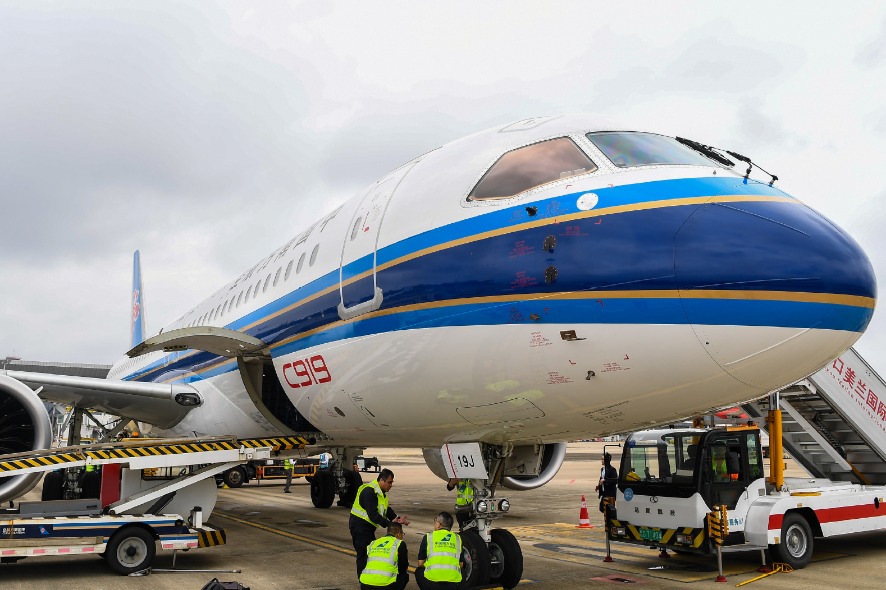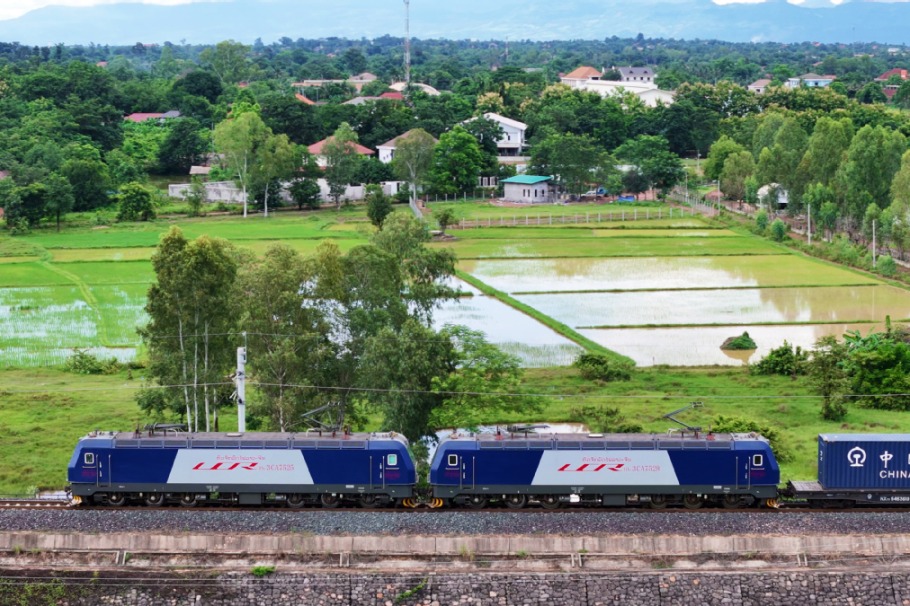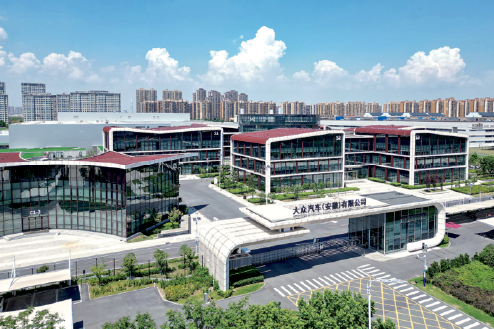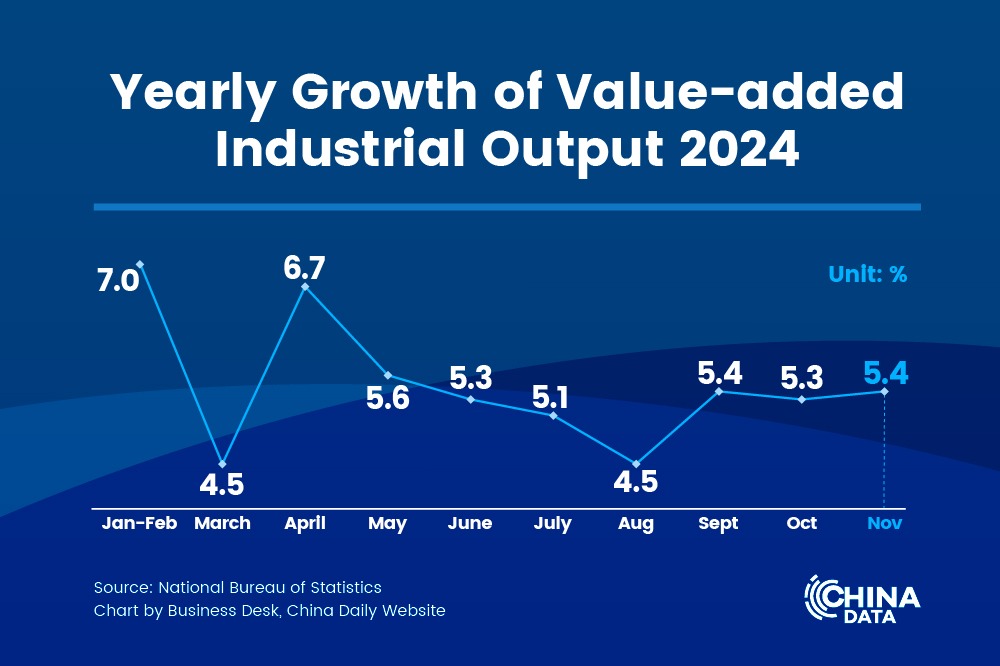Digital economy cooperation opens new doors


China, ASEAN members tap potential amid pandemic
In October, Nguyen, a man in Vietnam who has the inherited blood disorder thalassemia, successfully booked an online appointment with a medical expert in China.
The man, who only wanted to be known by his surname, constantly feels tired, is short of breath and appears pale.
An online platform enabled him to make an appointment with an expert working at the First Affiliated Hospital of Guangxi Medical University in Nanning, the capital of the Guangxi Zhuang autonomous region.
Thalassemia is common in Asia, the Mediterranean area and the Middle East. In Asia, it affects mostly people from southern China and countries in the southeast of the continent.
People with the disorder produce either no or insufficient hemoglobin, the protein molecule in red blood cells that carries oxygen from the lungs to the body's tissues and returns carbon dioxide from the tissues to the lungs.
Vietnam, a country with a high incidence of the condition, has relatively limited experience and technology in treating it, but China is now offering a helping hand.
A cross-border medical cooperation platform was launched in Guangxi in October, providing online services for people in member states of the Association of Southeast Asian Nations.
The platform was co-developed by the First Affiliated Hospital of Guangxi Medical University, Microsoft, Mindray Bio-Medical Electronics Co-a global medical instrumentation developer, manufacturer and marketer based in Shenzhen, Guangdong province-and China UnionPay.
Through information technology such as artificial intelligence, the one-stop medical and health management services cover every process before, during and after a patient is admitted to the hospital.
By accessing the platform through an app, patients from ASEAN countries can register and consult experts from the Guangxi hospital remotely. If necessary, they can also apply for cross-border medical transportation, allowing a patient to travel to China for further treatment.
Moreover, this digital platform has 10 different languages for patients to choose from, including all those spoken in ASEAN countries. More linguistic options will be available in the future.
Cooperation with China UnionPay enables patients to pay medical bills in their local currency, saving them from exchange transactions.
Although Nguyen was unable to travel to Guangxi due to the pandemic, he was diagnosed by a Chinese expert and received treatment at a local partner hospital.
Chen Junqiang, president of the First Affiliated Hospital of Guangxi Medical University, said cooperation has always been an important part of China-ASEAN relations.
"The incidence of some disorders, such as thalassemia, in Southeast Asian countries is about the same as in China, but our overall treatment level is higher than in Southeast Asia," said Chen, who has visited ASEAN countries many times to conduct field research.
With the help of the platform's remote cloud service, Chen said the Guangxi hospital can cooperate with those in ASEAN countries in a more specific and in-depth way.
"Such cooperation can also provide partners with cross-border functions, including remote consultation, patient referral and learning exchanges, so that we can realize seamless information sharing and integrated patient services among hospitals," Chen said.
The Guangxi hospital is also working on establishing a network that will enable partner hospitals to share information and accurate descriptions of a patient's condition in order to provide better treatment.
Patients can visit any designated hospital in this "medical ecosystem". After diagnosis, a local doctor will conduct a consultation with physicians in Guangxi through the platform.
"When we conduct cross-border medical diagnosis, a doctor's description of a disease is much more accurate than that provided by the patient or a family member," Chen said.
In the future, the cross-border platform will use cloud technology, help set up online pathological diagnosis centers, imaging diagnosis centers and intensive care unit monitoring centers, Chen said.
This digital cooperation comes as China and ASEAN member states are poised to further tap the potential of digital economy cooperation, especially during the pandemic.
According to Miao Wei, then minister of industry and information technology, the digital economy can improve the quality of people's lives and empower economic and social development.
From digital infrastructure to ensure the prompt supply of medical supplies, to such technology that can speed diagnosis and make it more accurate, digital applications have met increased demand from the public, Miao said.
Chen said that during the fight against COVID-19 last year, the Guangxi hospital organized seven international online conferences, sharing its experience in pandemic prevention and control with ASEAN countries and others.
It also produced English-language videos of throat-swab nucleic acid testing and also protection for medical workers, sharing the footage with hospitals in ASEAN countries.
More advances
In addition to the cross-border medical platform, other developments closely related to health have been witnessed in Southeast Asia.
During the pandemic last year, a factory in Malaysia installed new equipment at its entry gate to monitor employees' temperature when they clocked in.
The machine combined infrared temperature measurement equipment with a pandemic management and control platform developed by China Information Harbor Co, an information technology company in Nanning.
Li Ying, general manager of the company, said, "It can detect people's temperature and conduct facial recognition without the need to remove a face mask or headscarf-the latter being really crucial for many Malaysians."
In recent years, the company has devoted itself to collaboration between China and ASEAN on digital and industrial information. As of December, it had built three international communication submarine cables, 12 international terrestrial optical cables and 13 key communications nodes, according to the Guangxi big data development bureau.
Speaking of the continued improvement in industrial integration between China and ASEAN, Li said local people's acceptance of various online services is also increasing.
In Malaysia, China Information Harbor Co and a local operator jointly launched an app combining communication and life services.
In addition to voice calls, SMS and other communication services, users of the E-linking app can pay water, electricity, gas and landline telephone bills.
Li said such services make people's lives much easier, especially during lockdowns when they are not allowed to go out.
By using the app, Malaysians can make appointments for nucleic acid testing. "This will be a little bit more expensive, but many people are still willing to use the service, as there is no need to line up onsite," Li added.
Responding to Malaysians' need to work from home during the pandemic, the platform also introduced online shopping rebates, games, education programs and other virtual services.
Last year, the platform's revenue rose from more than 200,000 yuan ($30,920) in January to about 2 million yuan in May, a level the company has maintained.
In Indonesia, the Nanning company, in cooperation with local operators, developed a service called Super SMS, which allows the operator to send streaming content to a customer in addition to text and photos.
"In the past, text messages only had text content, but then there was MMS (multimedia messaging service), which had pictures along the text," Li said. "Now, Super SMS technology has an additional media stream, which can send 2 gigabytes of content and links as well."
Many companies in Indonesia, such as McDonald's and other chains, are using this technology.
"Movie theaters are also using it. Through Super-SMS information, you can see movie introductions, stills and even trailers. For traders, it is an effective marketing channel," Li said.
She said such messages can also be used to promote pandemic prevention methods, such as teaching people how to wash their hands or wear face masks correctly.
Operators in ASEAN countries are facing a problem their Chinese colleagues encountered years ago-customers rarely texting messages when instant messaging apps are free to use, Li said.
"How to make full use of the SMS function has become a tough issue for operators, and Super SMS is a solution for them from China," she added.
In Laos, China Information Harbor Co has been working on a project since the middle of last year with the Laotian Ministry of Posts and Telecommunications as well as China Telecommunication Technology Labs.
The project involves a third-party COVID-19 testing laboratory that can provide a full range of customer services and technical support.
Virasac Somphong, the Laotian consul general in Nanning, said although the pandemic has had a certain impact on regional economic and trade cooperation, digital economic cooperation will bring new impetus to the economic development of Laos, China and even the entire region in terms of trade, investment and tourism.
As information and communication technology plays an ever-increasing role worldwide, people have also witnessed the digital economy becoming a new economic growth engine in China and ASEAN member states, the diplomat added.
Zhou Fei, a director at the Guangxi big data development bureau, said China and ASEAN countries have established a mechanism to match scientific and technological needs, prompting construction of a technology transfer center for ASEAN members.
By May last year, the center had established inter-governmental bilateral technology transfer mechanisms with nine ASEAN countries, including Thailand and Laos, and formed a joint technology transfer working group with seven ASEAN states, Zhou said.
The cooperation also benefits cities in China, as Guangxi has invested in a digital economy industrial park in Laibin, a city in the center of the region.
By providing lower taxation, rent and electricity charges, along with other preferential policies, the park has attracted more companies focused on the digital economy.
Lei Yingtian, a Party official at Laibin Industrial Park, said, "In this way, the park can help the city transform from traditional energy-intensive industries to more environmentally friendly and sustainable industries."
New opportunities
The pandemic has had a serious impact on many industries worldwide, but the digital economy is one of the few to find new opportunities.
While lockdowns have prevented people-to-people exchanges, they have failed to halt online communication.
Song Tienong, president of TusPark (Guangxi) Group, a flagship platform for science and technology investment group TusHoldings, said cross-border e-commerce is becoming a new engine promoting trade and investment. It is also mitigating the impact of COVID-19 on economic activity between China and ASEAN countries, Song said.
"The development of cross-border e-commerce in Southeast Asia has made a qualitative leap during this period. The (profit) growth rate for such e-commerce has exceeded 50 percent, and the volume of trade with China has also increased," Song added.
In April last year, TusInnovation Cross-border E-commerce Co held a special live broadcast on the Southeast Asian e-commerce platform Lazada, aimed at selling anti-pandemic products such as face masks and goggles. The broadcast was watched by nearly 10,000 people.
To meet increased demand, the Lazada Cross-border Eco-Innovation Service Center opened in Nanning in June last year.
Established and supported by TusInnovation and Alibaba, the center aims to help Chinese companies develop a cross-border webcasting economy linked with ASEAN countries. Such an economy could provide services such as live broadcasts and training in cross-border e-commerce.
Zhao Hui, assistant general manager of TusInnovation Cross-border E-commerce Co, said that after operating for more than six months, the service center has attracted more than 80 traders and trained over 1,000 cross-border e-commerce hosts.
However, Zhao said livestreaming is not that common in ASEAN countries, where it is viewed as an advertising or publicity technique.
"Its current returns or profits (in ASEAN counties) cannot be compared with those in China. It is still in the investment stage, but such investment will be meaningful in the long term," she added.
Guo Lingling contributed to this story.




































